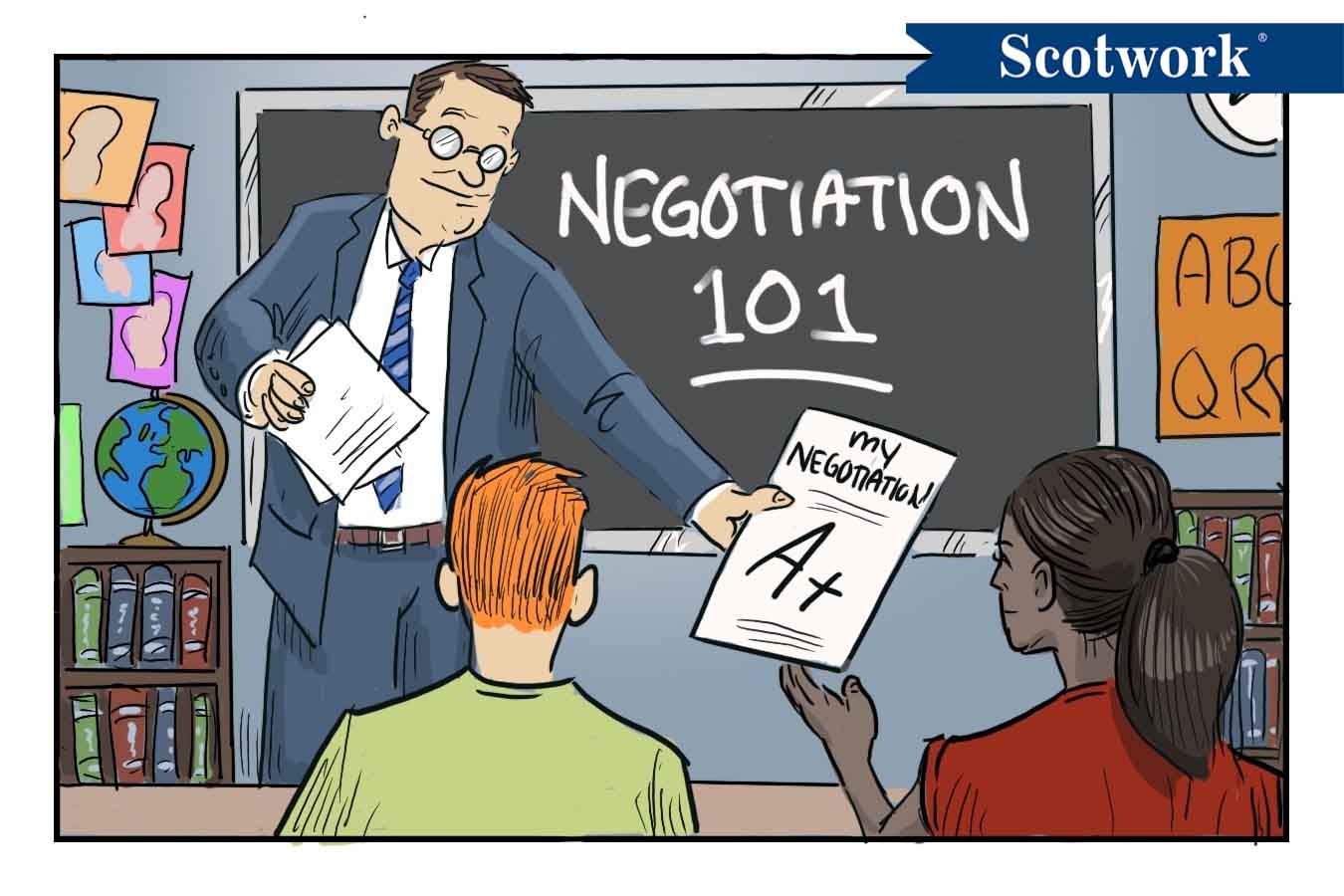As we head into back-to-school season, I’m reminded of one of my worst scholastic nightmares. Hearing my teacher say, “Pop quiz!” would send shivers down my spine. Not feeling prepared, uncertain of how it would impact my grade — these “stress tests” created a level of anxiety I couldn’t wait to escape once I graduated. Little did I realize that pop quizzes don’t stop once you leave school.
Back in my marketing agency days, I was in a meeting with a client, discussing a contract renewal. Our talks had been going smoothly — almost too smoothly. We’d gone over all the key points, made necessary adjustments that we both agreed on, and I was already thinking ahead to how we’re going to celebrate getting this done. Then it happened . . .
My counterpart casually leaned back and said, “Oh, by the way, there’s one more thing we’ll need before we can renew.” My brain instantly flashed back to school, where I saw one of my teachers with a mischievous grin, saying, “Close your books. Pop quiz!” I got that same sinking feeling and quickly scanned my mental notes. “I wish I knew what was about to happen,” I thought. “Am I prepared?”
These moments are common in negotiations. But learning a few valuable lessons regarding how to deal with them will determine how well we do and whether we get the deal.
Lesson 1: Expect the Quiz Before It Comes
In school, a pop quiz wasn’t about learning something new; it was about proving what you already knew. In a negotiation, surprise demands are the same test. They measure your preparation, not your improvisational skills.
If you’ve mapped your needs, understood your limits, and anticipated their wants, you’ll likely be ready. If not, you’ll be doing the equivalent of filling in random bubbles on a Scantron sheet.
Lesson 2: Don’t Let Panic Write Your Answers
When I got a pop quiz, I’d frantically start scribbling answers, almost in a panic. The more I rushed, the more flustered I got. The more flustered I got, the more mistakes I made.
In a negotiation, reacting without thinking is just as dangerous. Surprise demands are often designed to knock us off balance. When they come up, pause, take a breath, slow down. Instead of reacting, ask questions. Even a simple, “Can you walk me through why that’s important?” can buy you the mental space needed to determine how you’ll deal with surprise demands.
Lesson 3: Turn the Quiz into Extra Credit
Every once in a while, a pop quiz would cover the chapter I’d actually studied. YAY! That’s when I knew that the quiz would pad my grade instead of lowering it.
Surprise demands can work the same way. For instance, currently, the erratic nature of tariffs is creating surprise demands everywhere. If you don’t have a plan for this, you can find yourself absorbing more than you anticipated. However, if you look at the tariff just like any other demand, then instead of panicking, you can ask yourself, “What could I ask for in return that’s even more valuable to me?” Sometimes their surprise opens a door to a better deal.
The Final Bell
Whether you’re sitting in a classroom or across a negotiating table, pop quizzes (aka surprises) are all about readiness. If you’ve done your homework and are prepared, you don’t have to fear the surprise. Instead, you can meet it head-on and maybe even turn it to your advantage.
Negotiation Training and Consulting Can Help You Meet Surprises Head-On.
Negotiations frequently include surprises. Will you be prepared? Rely on Scotwork’s 50 years of expertise to help you meet a surprise head-on — and maybe even turn it to your advantage.

